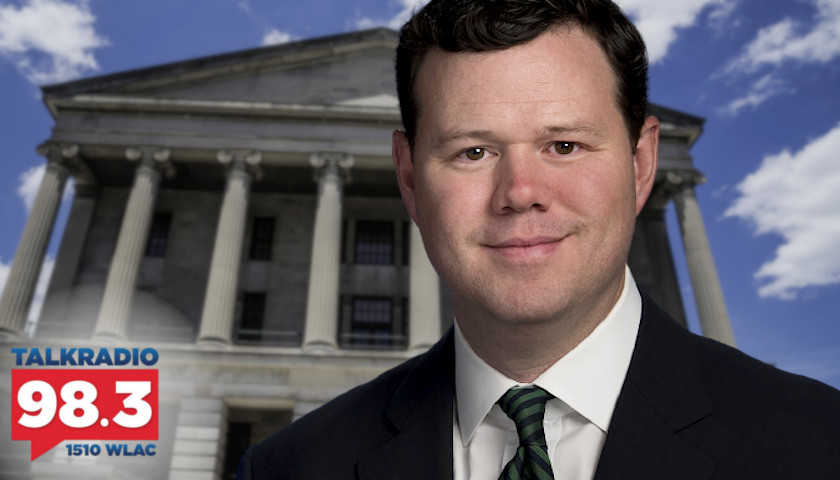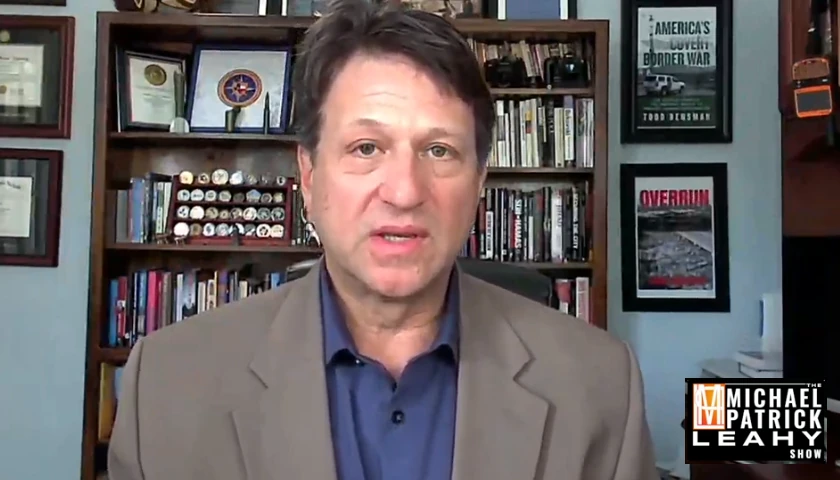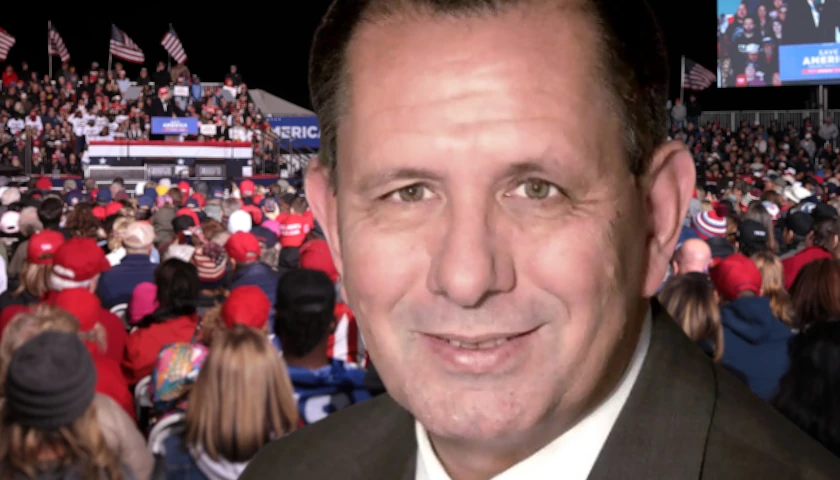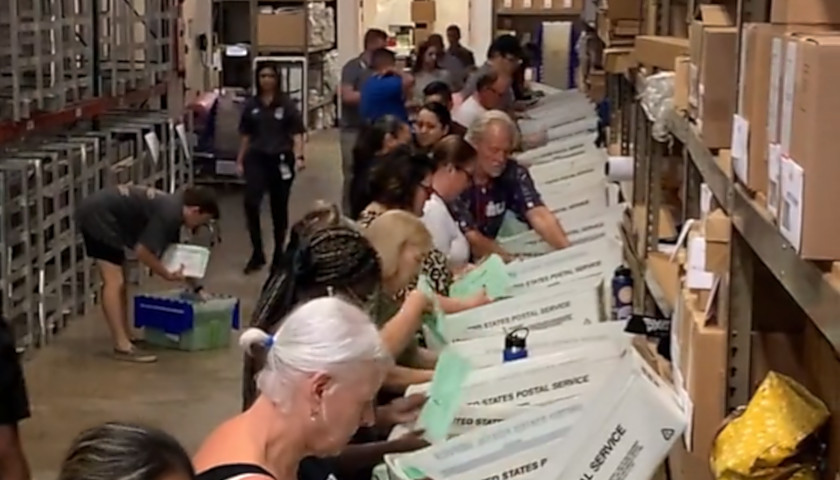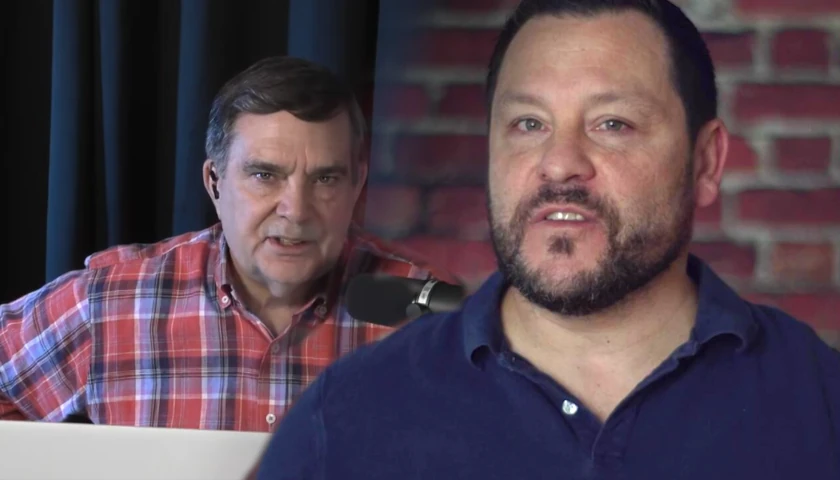Live from Music Row Wednesday morning on The Tennessee Star Report with Michael Patrick Leahy – broadcast on Nashville’s Talk Radio 98.3 and 1510 WLAC weekdays from 5:00 a.m. to 8:00 a.m. – host Leahy welcomed State Rep. Michael Curcio and chairman of the criminal justice committee to the newsmakers line to discuss his latest criminal justice bills and developments in obtaining broadband for rural communities.
Leahy: Joining us for the first time the newsmaker line here on The Tennessee Star Report is State Representative Michael Curcio from Hickman County and part of Maury and Dixon counties. He’s from Dixon. Welcome, Michael thanks for joining us.
Curcio: Thank you very much.
Leahy: Do I have the pronunciation of your last name correct? Is it Curcio?
Curcio: Yeah Curcio. You got it. Exactly.
Leahy: So I understand you are an Ole Miss grad.
Curcio: Hoddy toddy. That’s right. Good research. Absolutely.
Leahy: Look I had never been to Oxford, Mississippi until I went down and I met with a guy there by the name of Lee Habeeb who does our American Stories and has a big beautiful studio there. It’s a big radio program that’s got a lot of national syndication. What a great place Oxford is.
Curcio: It’s beautiful. I tell you I had a great four years there. And being from a kind of a middle western part of Middle Tennessee a lot of kids that I group up with actually went down told us it was pretty close, you know geographically and it was a very beautiful place to go to school. Not to take anything away from UT Knoxville or any other great colleges here in Tennessee, but yeah, it was a beautiful place to go to school.
Leahy: And of course, it’s the home of William Faulkner the Nobel Prize winner for literature and great writer. So tell us, you are the chairman of the criminal justice committee. What are the big bills you’re looking at here in your committee?
Curcio: Oh, thanks for asking. I’m so proud of the work that we get to do on committee because we are really doing the work of keeping Tennesseeans safe. So today in committee will be talking about some reforms to our juvenile justice system where we had some changes a few years ago that need to be tweaked a little bit. So we’ve got some kids unfortunately that we all hear about on the news and youth who are committing crimes like adults.
And we need to make sure that we’ve got stiff penalties for kids that would misbehave in those ways and create victims. And the same way that adults do so by strengthening some of those penalties for juveniles. We’ve also got a bill coming through today that would create truth in sentencing for people who commit sexual crimes. So these are rapists, aggravated rape, and the rape of a child. These kinds of things with truth in sentencing so that victims really know what they can expect from their criminal justice system. And again trying to focus on keeping Tennesseeans safe.
Leahy: It doesn’t sound to me like any of those are going to be that controversial.
Curcio: Well, not controversial but we got to make sure we get them right. You don’t want to sweep with such a broad brush that you inadvertently criminalize folks who are not committing these egregious behaviors. So we talked a lot about trying to separate who we’re mad at versus who you are afraid of. And so that’s really our job. So controversial, probably not. But more of a technical job of making sure we get the job right.
Leahy: I like that phrase. That’s a very good phrase.
Carmichael: Yeah. You want your criminal justice system to not be something that you use for people that you’re mad at it. I like that.
Leahy: Is that original to you Michael?
Curcio: Oh, well, it’s something I’ve always said. I mean as a rock-ribbed Republican I’m for limited government. I don’t want big government that’s so big that it can touch every aspect of my life. And so unfortunately for years, we expanded our criminal justice system because it sounded like we were being tough.
It sounded like we were being tough on every little thing. It’s like raising kids. When everything’s a big deal nothing’s a big deal, right? We’ve got to make sure we act swiftly and with a big hammer on the bad stuff. And then on the stuff that annoys us then you know, let’s say okay look, we’ve got to correct this behavior, but you probably don’t need to be spending time and in a state prison facility. We need to save those beds for the bad guy.
Leahy: Yeah, it’s common sense. I like that approach.
Carmichael: I like that. What else is going on in the legislature that is of interest to you?
Curcio: Yeah, so and it’s a huge deal in my district. The big interest to me which is rural broadband access. So a couple of years ago when I was first elected to the general assembly I was proud to co-sponsor the Rural Broadband Accessibility Act. We made a big deal out of it and it was the first time the state really started to invest in that. But many people in my district said look, this is great.
I’m glad you guys did something but they’re still no internet at my house. It’s still not in my neck of the woods. And so I want to put this in perspective. That was about a 12 to 15 million dollar investment in those days, which was was good. We needed to get it started. But this year Governor Bill Lee has announced because we’ve got a lot of one-time surplus dollars, a 200 million dollar investment into rural broadband. Let’s put that in perspective.
The entire USDA reconnect budget was about 600 million dollars. So we’re going to do a third of that just for 95 counties in Tennessee. So when I went back and told my constituents hey, we’re doing another investment broadband, and rightfully so people are saying yeah well we’ve heard that before. We’ll see if the proof is in the pudding cup.
This is a tremendous investment and this is really some legacy building kind of stuff where if you’re interested in getting rural Tennessee connected. I mean this 200 million dollar investment will make sure that it happens. We’ll be at a place here in the next couple of years where every Tennesseean who wants connectivity will be able to get it. This is tremendous.
Carmichael: And this is kind of a one-time investment to get that infrastructure in place?
Curcio: That’s right. That’s right. And if you look at what they did at the federal level at USDA, we don’t borrow a lot of ideas from the feds because a lot of times they get it wrong. But these types of programs are really the free market and action if you will in a way because what they’re doing is they’re taking the money and then they’re working with local folks who bid on those jobs.
Because a one-size-fits-all approach is not working. A line-of-sight technology may work great in West Tennessee where it’s flat but you’re not going to get any kind of activity with that where you’ve got hills and mountains and valleys and so forth. So what I love about it is that it keeps the government completely agnostic on the technology bit and it allows us to work with entrepreneurs that can actually show results. And if you don’t get results you don’t get the funding.
Carmichael: And so when will this infrastructure assuming that this passes, when will it be completed?
Curcio: So the way the program is structured is the money would go to ECD. So that would be after the governor’s budget passes and then goes into effect this summer for the next fiscal year. And then I’m actually working with ECD now to hear kind of what their plans are as far as working with locals on the ground, and what that timetable looks like.
Obviously, it’s not like turning a switch on and we were very careful to say that the first time but the Rural Broadband Accessibility Act which we don’t have this magic light switch somewhere that just as soon as the governor says we can turn it on we can turn on. It will take some time. But my point is now we’ve actually got the resources to truly do the work.
So it is one-time funding because it’s money that we’ve got in surplus this year, but it doesn’t mean that it’s a one-time investment. So you put the two hundred million dollars over into that bucket and then the program can live on as the infrastructure gets created.
Leahy: We’re talking with State Representative Michael Curcio who represents the 69th district in the Tennessee House of Represenatives. A Republican. That district covers Hickman County and parts of Maury and Dickson County. Michael, let me ask you this question because a lot of our listeners are interested in influencing legislation, but they don’t know how to do it.
What advice would you have for them? Because you’re chairman of this important committee. If they want to actually influence legislation, what’s the best approach for a voter to take in terms of having your ear and communicating their ideas to you so perhaps you might consider turning that into legislation?
Curcio: That’s a great question. And I’m so glad you’re asking it because so many people just walk around frustrated saying I don’t like the way things are going. I’m upset with the federal government. I feel like I’m not involved and my vote may not matter. Let me tell you, your state representatives are on the ground. I’m the guy you run into in the grocery store, right? So relationships matter. Call your representative. Talk to them on the phone.
Shoot them an email. Those things matter. I review those emails that come into my inbox every day. I get phone calls and text messages from people in my district because I’m not in some far-off, you know, ivory tower someplace. We live and work in our communities. So I would strongly encourage people to get involved. Follow the committee process.
I know that’s kind of like watching paint dry sometimes but pay attention because a lot of these advocacy groups that mean well, they’re going to send out an alert that says, oh this bill’s been filed by such and such member and you need to be concerned about this. Or you need to be upset about it. What people need to understand is that any representative can file a bill on any topic at any time.
And because it’s been filed does not mean it’s going anywhere or that it’s really got any groundswell. Often we have colleagues unfortunately who will file bills simply to get interviewed and so that they can get the press release out with no intention of ever moving that thing. I would encourage this kind of twofold. Number one, pay attention and get involved and talk with your representative.
But also try to know a little bit about the process because not everything that gets talked about or proposed is necessarily going to become law. And in fact very few of the things that we talk about each year become law because it ought to be hard to change the laws in this state.
Leahy: State Representative Michael Curcio, thanks for joining us on the phone. Will you come in studio sometime and spend a little more time with us?
Curcio: Absolutely. I would love that.
Listen to the full third hour here:
– – –
Tune in weekdays from 5:00 – 8:00 a.m. to the Tennessee Star Report with Michael Patrick Leahy on Talk Radio 98.3 FM WLAC 1510. Listen online at iHeart Radio.
